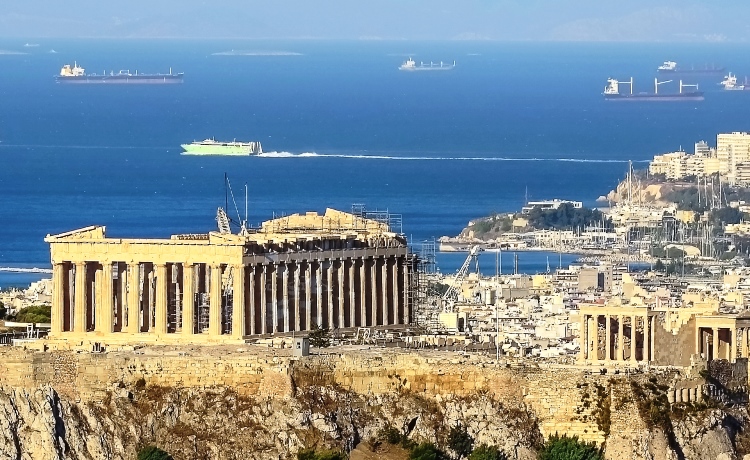Banking, finance, and taxes
NBG Among Top Greek Bank Credit Downgrades
Published:
Last Updated:
Greece’s credit ratings woes are not yet over. It turns out that Fitch Ratings has downgraded the key Greek banks, following its downgrade of Greece’s sovereign rating on March 27, 2015. Included in the downgrade are National Bank of Greece S.A. (NYSE: NBG), followed by Piraeus Bank, Eurobank Ergasias and Alpha Bank.
Only the National Bank of Greece has been included in this review because it is the only actively traded American depositary shares (ADSs) in New York. Fitch’s downgrade pertains to the long-term issuer default ratings (IDR), and National Bank of Greece saw its rating cut to CCC from B- in the call. Fitch further said that the viability ratings (VR) were cut to ccc from b-.
Perhaps the only good news here is that the four banks’ ratings have been removed from Rating Watch Negative (RWN) now that the downgrade has arrived. If you go deeper, NBG’s shares have so far ignored the downgrade. After all, who is surprised when a credit rating downgrade occurs in Greece?
ALSO READ: NBG Trifecta: Earnings, Management Change, Tsipras Meeting in Germany
Fitch went on to note that the downgrades reflect Greece’s weaker economic prospects putting the asset quality and solvency at further material risk for the banks. Another issue was the liquidity and funding pressure that is expected to generate added deposit outflows until a compromise deal between Greece and its creditors is reached. Fitch said:
The deterioration in operating conditions increases the risk to Greek banks’ already weak funding and liquidity due to continued deposit outflows, whilst repo markets remain closed. The system has lost euro 24 billion of domestic private sector deposits since November 2014, or 15% of the total, in line with our expectations. As a result, central bank funding increased to euro 104 billion at end-February 2015 (26% of system assets), of which 63% is from the Emergency Liquidity Assistance (ELA). Remaining ELA collateral buffers (around 35% of system domestic private sector deposits) seem sufficient to face additional deposit outflows, but will come under more pressure as loan quality deteriorates. Moreover, ELA is only available temporarily for solvent banks and its capacity is subject to approval by the ECB. This makes the funding and liquidity of Greek banks extremely sensitive to any changes in the ECB’s supervisory arm’s opinion of the banks’ solvency.
On the NBG specifically, Fitch said:
The long-term state-guaranteed debt of NBG and Eurobank has been downgraded to ‘CCC’, in line with Greece’s Long-term IDR. State-guaranteed debt issues are senior unsecured instruments that bear the full guarantee of Greece. Consequently, their ratings are the highest of the issuer’s Long-term IDR and Greece’s Long-term foreign currency IDR. These banks’ state-guaranteed debt ratings are sensitive to any changes to Greece’s sovereign ratings.
The ratings news for NBG contains the technical abbreviations as follows for the parent NBG:
ALSO READ: The Healthiest (and Least Healthy) Countries in the World
Also, the ratings downgrades for NBG Finance were as follows:
NBG shares ignored the ratings downgrade in New York trading. They were up 6% at $1.305 in mid-afternoon trading on Monday. That being said, NBG’s 52-week trading range is $0.98 to $5.73.
The last few years made people forget how much banks and CD’s can pay. Meanwhile, interest rates have spiked and many can afford to pay you much more, but most are keeping yields low and hoping you won’t notice.
But there is good news. To win qualified customers, some accounts are paying almost 10x the national average! That’s an incredible way to keep your money safe and earn more at the same time. Our top pick for high yield savings accounts includes other benefits as well. You can earn up to 3.80% with a Checking & Savings Account today Sign up and get up to $300 with direct deposit. No account fees. FDIC Insured.
Click here to see how much more you could be earning on your savings today. It takes just a few minutes to open an account to make your money work for you.
Thank you for reading! Have some feedback for us?
Contact the 24/7 Wall St. editorial team.